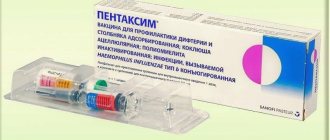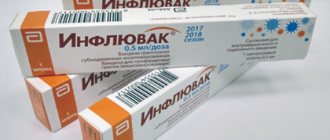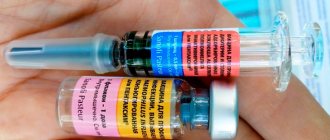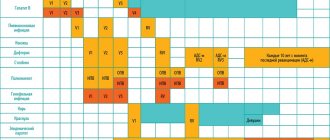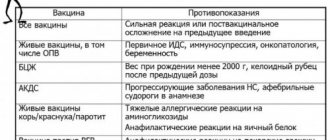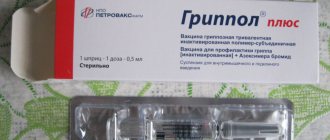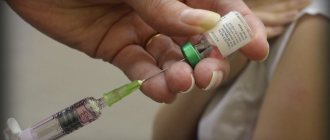Recently, doctors are increasingly warning their patients about the dangers of pneumococcal infection, especially when it comes to children under the age of five. These microbial agents are able to remain latent in the human body until his immune system fails.
When immunity declines, pneumococci begin to behave quite aggressively, provoking the development of inflammatory diseases of the respiratory system, in particular, obstructive bronchitis and pneumonia.
In addition, in young children in the first years of life, pathogens of the disease can cause symptoms of sinusitis, pneumococcal meningitis, myocarditis, otitis media or joint damage. Often such pathological conditions have a complex course and ultimately lead to death.
Since 2014, vaccination against pneumococcal infection in our country has been included in the National Vaccination Calendar and is therefore regulated at the legislative level.
A protective injection can be done absolutely free of charge by visiting a clinic at your place of residence. Today, the main vaccine drugs against the disease are Prevenar and Pneumo 23.
Both of these solutions have proven effectiveness, are well tolerated by the body and contribute to the development of lasting immunity against the main strains of pneumococcal infection.
So, which drug is better to choose? Is it possible to alternate Prevenar and Pneumo 23? How will such actions affect the state of immune reactivity?
Vaccine options
Vaccines against pneumococcal infection began to be developed only in the second half of the 20th century.
The difficulty in creating such vaccinations was (and is) the huge number of types of pneumococcus - more than 90 in total. First, a 14-valent vaccine was created. It began to be used in 1977. And in 1981 it was replaced by a 23-valent vaccine, which is still used today. But these vaccinations against pneumococcal infection could only be used by children from the age of two. And the most vulnerable group of young children still remained unprotected from pneumococci. Therefore, pharmaceutical companies around the world have begun developing a new generation of drugs - conjugate vaccines. The first such vaccine was the seven-valent pneumococcal conjugate vaccine Prevenar. It included seven types of pneumococcus, each of which was conjugated with non-toxic diphtheria protein and adsorbed on aluminum phosphate. The following vaccinations are currently used in Russia: Pneumo-23 (non-conjugated polysaccharide vaccine), 13-valent Prevenar 13, 10-valent Synflorix. Prevenar vaccinations can be administered to all children from 2 months of age, 10-valent Synflorix (polysaccharide, conjugated with D-protein of non-typeable Haemophilus influenzae, tetanus and diphtheria toxoids, adsorbed) - from 6 weeks and Pneumo-23 vaccination "- only from 2 years old.
How is Prevenar different from Pneumo 23?
Despite the fact that both vaccines protect against the same infection, they are radically different in composition and have completely different immunization schedules.
Differences in vaccine composition
The Pneumo 23 vaccine is a drug of French origin, which was developed to form lasting immunity against the 23 most pathogenic types of pneumococcus.
The solution contains:
- antigens to the 23 most common strains of pneumococcal infection on the continent;
- phenol as a preservative;
- sodium phosphate.
The vaccine is available in the form of a white powder, which must be dissolved with water for injection according to the instructions before administration. The drug is enclosed in disposable syringes in a dose of 0.5 ml, intended for single use.
The Prevenar vaccine is an immune liquid of American origin. At first it contained antigens to the seven main pathogens of pneumonia, but this list was soon expanded.
Today, the Prevenar vaccine contains antigenic complexes for the 13 most dangerous types of pneumococcus for the human body, stabilizer aluminum hydroxide, a protein component and an anti-diphtheria component. The solution is placed in syringes for single use, which are used once and are disposed of after the procedure.
Difference in mechanism of action
Prevenar 13 is one of the conjugate vaccine suspensions that are able to adhere to the body's cells and form a persistent immune response. Whereas Pneumo 23 is a classic polysaccharide drug that does not have similar properties.
Vaccine Prevenar 13
American scientists deny the effectiveness of Pneumo 23 as a reliable means of preventing pneumococcal infection. Prevenar is indicated for babies from two months, and Pneumo 23 can be administered only after two years.
This is a huge disadvantage of the polysaccharide vaccine, since pneumococci pose the greatest danger to children in the first months of life, in whom they most often lead to the development of life-threatening pathological conditions.
Differences in vaccine response
Numerous studies confirm that after injection of Prevenar 13, persistent immunity against pneumococci appears by the end of the second week and remains at a sufficient level for many years.
Unfortunately, after injection of Pneumo 23, in most clinical cases immunity appears only to 17-18 declared strains instead of 23.
In addition, the injection of the drug is very painful, which once again emphasizes its outsider position. All modern vaccines are quite well tolerated by the human body. Naturally, their use sometimes leads to the development of reactions to the drug.
According to studies, the incidence of plug effects when using Prevenar and Pneumo 23 is almost the same, so it cannot be said that one vaccine is more dangerous than the other.
Principles and purposes of vaccination
Pneumococcal disease is one of the leading causes of morbidity and mortality worldwide. Serious diseases often caused by pneumococci include pneumonia, meningitis, and bacteremia with fever. In 2005, WHO estimated that 1.6 million people die each year from pneumococcal disease. Therefore it must be prevented.
By the end of 2013, pneumococcal vaccination had been introduced in 103 countries, and immunization coverage had reached 25%. By order of the Ministry of Health of the Russian Federation No. 125 of March 21, 2014, vaccination against pneumococcal infection was introduced into the National Calendar of Preventive Vaccinations of the Russian Federation.
Composition and pharmacological action
The vaccine is polyvalent and contains highly purified capsular polysaccharides from 23 serotypes of Streptococcus pneumoniae. Excipients: sodium chloride, phenol, water for injection. Main purpose: prevention of pneumococcal infections.
Vaccine Pneumovax 23
The vaccine covers about 90% of the invasive serotypes existing in the world, including the most common in Russia: 3, 6B, 14, 19F and 23F. Laboratory studies confirm that after the vaccine is administered, immune cells recognize foreign objects and form specific antibodies.
After this, the antigen is eliminated from the body. This is how an immunological memory is formed, which, when a real pathogenic microorganism enters, easily recognizes it, preventing the disease from developing.
In recent years, there has been a steady increase in the resistance of pneumococci to drug therapy, so a vaccine against this group of infections is becoming mandatory even in those countries where it was not previously used as such.
Vaccine effectiveness
In international practice, since 2000, vaccination has been used for immunoprophylaxis of pneumococcal infection in newborns and young children. According to WHO, world experience has shown that mass vaccination reduces the incidence of pneumococcal meningitis and severe pneumonia in children by more than 80% and the incidence of all pneumonia and otitis media by more than a third. The carriage of pneumococci in children is decreasing, and accordingly, both unvaccinated children and adults get sick less.
The World Health Organization projects that global use of pneumococcal vaccinations will prevent 5.4-7.7 million child deaths by 2030. The Prevenar13 vaccine protects against the thirteen most common types of pneumococcus, which cause up to 80% of pneumococcal infections.
Pneumococcal vaccination
Please check with the clinic administrators for availability of vaccines.
Pneumococcal infection is a set of diseases caused by a certain bacterium called pneumococcus (Streptococcus pneumoniae).
It causes many complex diseases. Pneumonia, pleurisy, arthritis, purulent meningitis, acute otitis media, endocarditis, which are dangerous for children and adults, can cause adverse complications after an illness.
A seemingly harmless cold, otitis media, as well as some infectious diseases (for example, measles) affect the activation of the bacterium Streptococcus pneumoniae. General methods of prevention in this case are ineffective; it is recommended to vaccinate the child against pneumococcal infection.
The disease belongs to the acute group, in which the body temperature rises sharply and can reach 40 degrees. Older children may often have a sore throat. If the disease is not treated in time, the bacterium Streptococcus pneumoniae migrates to the nasal sinuses (upper, middle, lower), lungs and membranes of the brain, which is very dangerous. Standard treatment uses antibiotics. Today, due to the widespread use of antibacterial drugs, the causative agent of pneumococcal infection has ceased to be sensitive to them. Doctors are not always able to find effective means to save a child from illness. The vaccine against pneumococcal infection has gained great popularity, since any disease is easier to prevent than to cure. Now it is the most effective drug for protection against pneumococcal infection.
Vaccine Prevenar
All vaccines have a common mechanism of action. They help obtain immunity from a specific pathogen. The pneumococcal vaccine Prevenar 13 will have an inhibitory effect on streptococci, which cause pneumonia. All categories of people are at risk of getting sick: children, adults, pensioners. Damage to the respiratory system in infants and preschool children is especially dangerous. Although the disease can now be completely cured, for babies it sometimes ends in death. Due to weakened immunity, the child’s body begins to attack other microorganisms. Intolerance to many drugs or their weak effect on the pathogen leads to severe complications, including damage to the central nervous system.
After administration of the drug, the body produces antibodies to capsular polysaccharides of Streptococcus pneumoniae (may have several serotypes). This method of prevention will help to form the body’s specific defense against specific infections. The vaccine against pneumococcal infection can be safely used by children two months old and older. Primary vaccination, as well as repeated vaccination after a certain time, form the protection of the human body for the correct immune response to the pathogen. The manufacturer is the USA.
Vaccine Pneumo 23
The next well-known vaccine manufacturer is France. Vaccination against pneumococcal infection promotes the development of active immunity. It helps the body fight three serotypes of Streptococcus pneumoniae. The composition of the vaccine includes polysaccharides of more than 20 serotypes, as well as a phenolic buffer solution. Scientific studies have been conducted that have proven the effectiveness of this vaccine and its safety for the body, especially for a growing child. The drug "Pneumo 23" was evaluated for reducing the incidence of disease. Bronchitis and pneumonia affected almost 90% of the estimated population. But those who did get sick had mild forms of respiratory infections (they had long suffered from chronic illnesses or experienced severe stress).
Vaccination against pneumococcal infection "Pneumo 23" is not included in the mandatory vaccination schedule. It is indicated for people aged 2 years and older with their personal desire or the consent of their parents. The use of the vaccine is recommended for people who have a high risk of contracting one of the types of pneumococcus and getting dangerous complications, for example, if an epidemic of pneumonia begins.
Synflorix
Another effective drug can be called Synflorix as an excellent vaccine against diseases arising under the influence of pneumococcus. The causative agent Streptococcus pneumoniae is a precursor of acute respiratory infections. Most often these are pneumonia and bronchopneumonia. Children under 5 years of age are more susceptible to purulent meningitis, acute otitis media, and adults are more susceptible to pneumonia, sepsis and meningitis. In more than two-thirds of cases, streptococcal infection is a provoking factor in inflammation of the lung tissue after acute respiratory diseases, such as influenza. Cocci (round-shaped bacteria) are highly resistant to antibiotics, so in this case the use of a special vaccine is effective. It affects the formation of immunity to certain bacteria. Synflorix belongs to the group of second generation vaccines.
Vaccination against pneumococcal infection at the Miracle Doctor clinic
For vaccination against pneumococcal infection, we use only drugs proven by clinical trials that meet all international standards. They are certified and of high quality. Contraindications are kept to a minimum. These vaccines are usually supplied by foreign manufacturers. The clinic staff carefully monitors compliance with sterile conditions; only disposable instruments and materials are used. We allow manipulations only after consultation with a highly qualified therapist.
Contraindications
For pneumococcal conjugate vaccines: increased sensitivity to previous vaccination (severe generalized allergic reactions); hypersensitivity to diphtheria toxoid and/or excipients; acute infectious or non-infectious diseases, exacerbations of chronic diseases. Vaccinations against pneumococcal infection are carried out after recovery or during remission. Pneumococcal polysaccharide vaccines: pronounced reaction to the previous vaccination, PPV23 vaccination less than 3 years before the intended PPV23 vaccination.
To whom are vaccinations against pneumococcal infection especially indicated?
First of all, these are young children. There are also so-called risk groups for the incidence of pneumococcal infection. These include:
- persons 65 years of age and older (primarily those permanently residing in special institutions for the care of elderly citizens). Vaccinations against pneumococcal infection at this age are mandatory in many countries of the world, economically developed and developing;
- children and adults with chronic diseases of the cardiovascular and respiratory systems, diabetes mellitus, liver cirrhosis, chronic renal failure, Hodgkin's disease;
- children and adults planning or who have already undergone spleen removal;
- children and adults with sickle cell disease;
- children and adults with oncohematological diseases;
- children and adults with cerebrospinal fluid leakage;
- HIV-infected children and adults;
- “organized” contingents (military personnel, residents of nursing homes, prisoners and other adults and children living in crowded conditions);
- alcoholics and cigar smokers.
The expectation of a second and repeated waves of coronavirus infection is becoming a real fact. Reassuringly, scientists suggest that repeat waves will be less threatening. Figuratively comparing it to a pebble thrown across the water. Most scientists assume a second wave of coronavirus infection this fall, coinciding with the seasonal rise in respiratory viral infections and influenza. Influenza vaccination should also be a necessary element of protection. WHO annually, based on monitoring results, names the most likely strains for each epidemic season. All three strains in the 2020-2021 season vaccine are completely new; previous years’ vaccines did not include them. The latter fact highlights the importance of annual influenza immunization.
When to vaccinate?
The following administration schedules are available for pneumococcal conjugate vaccines:
| Start of vaccination | PCV10 vaccination | PCV13 vaccination |
| 2-6 months | 3 times with an interval of at least 1 month and revaccination in the 2nd year (at 12-15 months) or 2 times with an interval of at least 2 months and revaccination in the 2nd year (15 months) | 3 times with an interval of at least 1 month and revaccination in the 2nd year (at 12-15 months) or 2 times with an interval of at least 2 months and revaccination at 15 months |
| 7-11 months | 2 times with an interval of at least 1 month and revaccination in the 2nd year of life | 2 times with an interval of at least 1 month and revaccination in the 2nd year of life |
| 12-23 months | 2 times with an interval of at least 2 months | 2 times with an interval of at least 2 months |
| 2-5 years (24-71 months) | One time |
For children at risk, there is a booster vaccination scheme with polysaccharide pneumococcal vaccine (PPV23) no earlier than 2 months after PCV administration.
It is recommended to begin immunization of adults with PCV13 vaccination to form immune memory and increase the duration of possible protection against pneumococci. A similar booster vaccination with PPV23 in adults is carried out no earlier than 12 months after the introduction of PCV.
Scheme and method of administration of the vaccine "Pneumovax 23"
In order to identify contraindications, the doctor conducts a survey and examination of the vaccinated person on the day of vaccination with mandatory thermometry.
Vaccinations are performed once. The vaccine is administered subcutaneously into the outer surface of the upper third of the shoulder. A single dose for all ages is 0.5 ml.
A single booster dose of Pneumovax 23 is recommended for persons 2 years of age and older who are at greatest risk of serious pneumococcal infections and those whose anti-pneumococcal antibody levels may decline rapidly, provided that at least five years have passed since The first dose of pneumococcal vaccine was administered. In children 10 years of age and younger who are considered to be at high risk for severe pneumococcal infections, revaccination with Pneumovax 23 may be considered three years after the previous dose of the vaccine.


